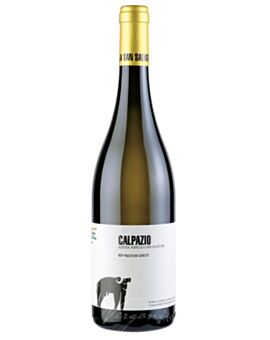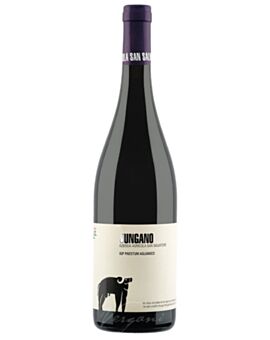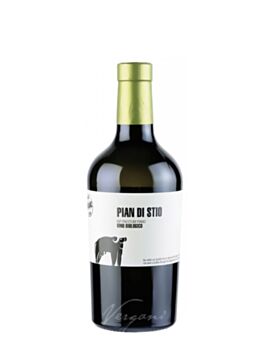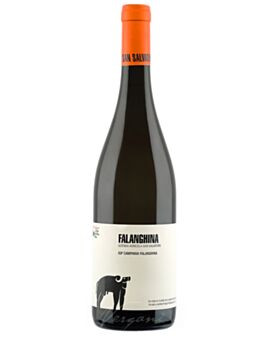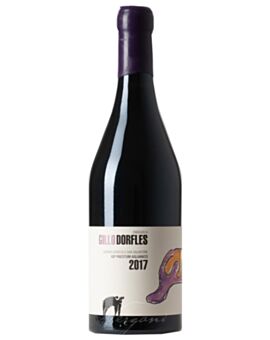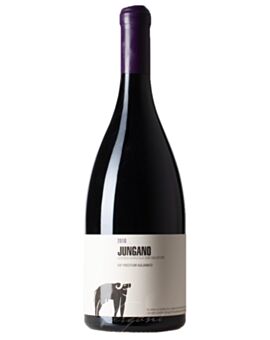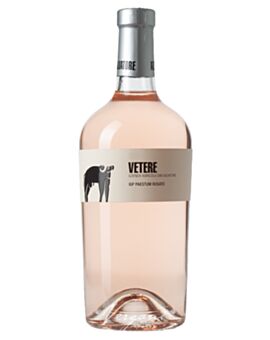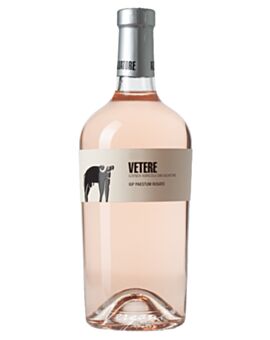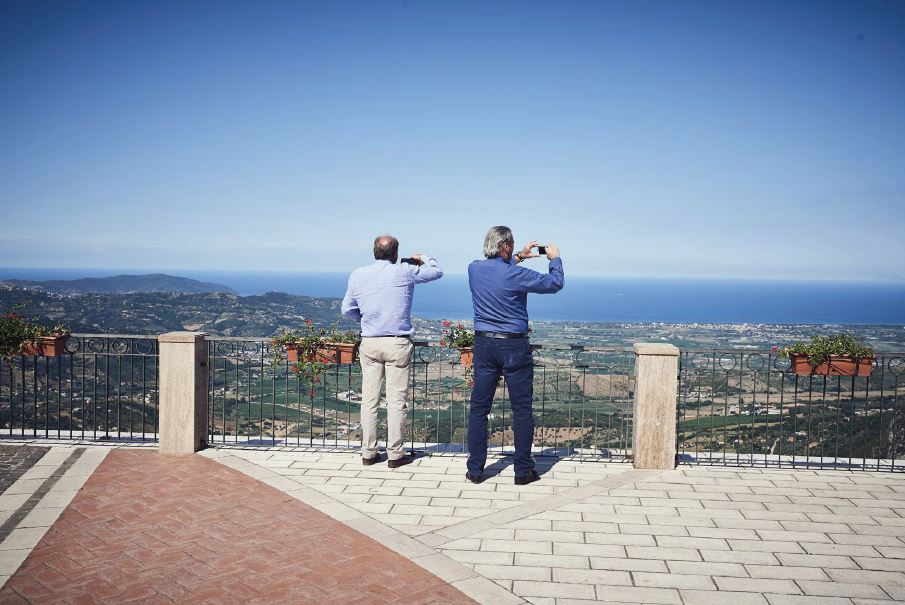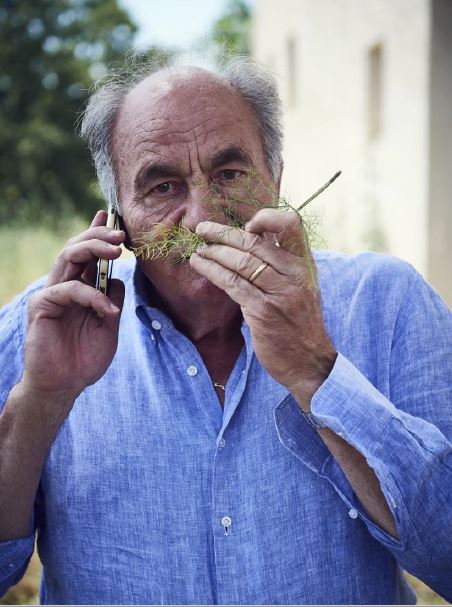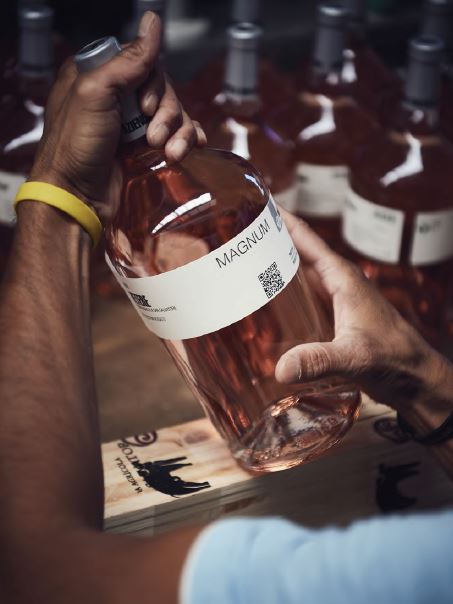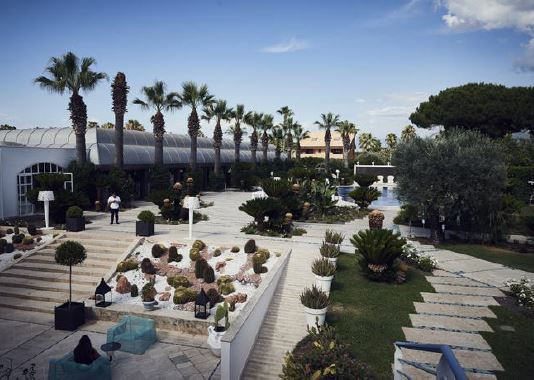San Salvatore


San Salvatore
Giuseppe Pagano calls himself a tuttologo. A generalist who does things thoroughly
or not at all. This is how the hotelier became a successful multi-entrepreneur.
The wines of his winery were catapulted from nowhere to the list of the best in Italy
. How does he manage that? A follow-up report.
In Naples, there is a founding myth that says that God, after creating the Gulf of Naples, sat back and realized that everything had worked out even better for him here than anywhere else. So he felt compelled, to compensate, to invent the Neapolitans. Giuseppe Pagano doesn't feel like one at all. He says he is a "greco-romano," half Roman, half Greek. His father came from Boscoreale near Pompei, his mother from Paestum. Ecco. That's what he tells us while we sit in his Discovery and marvel at how fast you can drive it. For Giuseppe Pagano (63) there is only one lane. The fast lane. The entrepreneur no longer has time for anything else, because: "On my 50th birthday, I realized that I have to increase my pace if I want to achieve everything I set my mind to." Welcome to his world, where even Reto Vergani has to hold on - no - buckle up. We leave Napoli on the motorway heading for Salerno. Giuseppe Pagano has put together a tight itinerary for his friend from Switzerland, because he's a busy general contractor, not a dreamy small winemaker in a sleepy hamlet in southern Italy. Pagano is an inconvenient instigator and a through-putter. In a remarkably persistent way, he has managed to organically link his different ventures in tourism, agronomy, food production, wine, gastronomy, and hotel business, today, they mutually stimulate each other. But: "Our wines are the best ambassadors of the region", he says. The region would be Campania, the province of Salerno, but certainly he is talking about the IGP Paestum, which has existed since 1995.
It quickly becomes clear that he reveres his homeland and that he does many things out of a deep love for the Cilento. He is a connected man for whom home is sacred and viticulture is his family "Back to the Future". "My father cultivated vines on the slopes of Mount Vesuvius, he bought grapes and produced vino sfuso," he says, as his cell phone rings and he's just rushing past a construction traffic light at a red light. Yes, there were already vehicles there. No, that's not made up. Also true is that before he even takes the call, he turns and says over his shoulder, "It's only red when someone's oncoming." The phrase sits. It's only red when someone's coming the other way. Delightful. While we inmates are still pondering the Neapolitan nature of this statement, Pagano has long since taken the phone call and ended it again. Where were we driving? Exactly. The father made wine. The son helped energetically. The mother prevailed in 1960, and the family moved to Paestum, not far away. There the father continued to make wine until 1974. "My father taught me a lot of things. Before and after school I helped him in the wine cellar, from this work I also got my broad shoulders," says Pagano. But in 1974, his father suffered a heart attack, and it would have changed everything, so the family reoriented and entered the thriving tourism industry. A pension was taken over. The Pension Schuhmann, which belonged to a Berliner, who in turn had brought many German regulars to Paestum. The accumulated experience in this pension, together with the attitude of his father, were the foundation stones for the philosophy of Giuseppe Pagano of today. "Many subtle differences make the difference," he says, and he likes to say it in accent-free German. German he speaks because Mr. Schuhmann's guests have stayed, stayed because the Pagano family has continued to run the pension even more conscientiously, even more correctly, even cleaner, even friendlier, and only at the same price only with even better food. So. Now it's time to bring an overview of his world, to slow down the pace, to stretch the feet, the sun is setting, you could go to the beach, look at the sea and so. Not with Giuseppe Pagano.
"For me, it's about showing the young people here that growth is not only possible with quantity, but also with quality."
Giuseppe "Don Peppino" Pagano: winemaker, hotelier, and high-flyer
It is a steamroller, and when it rolls, there is no stopping it. Right now it is rolling toward a hotel. It is his hotel. His dream come true. "Here, at the age of 24, I implemented everything that makes a perfect hotel for me," he says, even before the doors of the vehicle are ripped open. He had traveled everywhere to the best hotels, looking intently at the layout of the kitchens, studying the procedures, banquet halls, rooms, the reception. "I imitated everything that was good," he says, because, first of all, that was not forbidden, and secondly, there was no need to reinvent anything that had been tried and tested. The hotel has four stars and is called "Savoy Beach Hotel" in Paestum. The entrance is large, reminiscent of Las Vegas, but that also makes sense, because he has geared the hotel to events. Weddings. Banquets. Celebrations. Here you arrive in grandezza, and nowhere else in the region can you make more people happy in style at the same time. A huge garden with waterscapes, palm trees, arches of flowers, bars, the gourmet restaurant "Tre Olivi", terraces, secluded seating areas, you can't get out of being amazed anywhere. "If you must do something, do it in style," says Pagano, referring to Freddie Mercury, from whom the saying is said to have come. He himself speaks of the good and the beautiful combined. "No chef in the world can create a great dish from bad ingredients," he says.
dish from bad ingredients," he says, lifting a wilted leaf from the floor. The details. They have to be right, and he's the first to notice when something isn't right. It's exhausting. But it's his recipe for success, and he runs through it in all his ventures. Truly Neapolitan.
Gastronomy, wine, olive oil, mozzarella, it's all basically the same thing at his altitude of flight, because if it's done well and cultivated in a beautiful place, nothing can go wrong, according to his theory. "Honesty," he says, pays off in any business. Zack. Next hotel. The 22-room, four-star "Esplanade" boutique hotel is right next door, and not far from it is the "Beach Club 93," which, in addition to a private beach with sun beds, sunbeds, umbrellas and a pool, as well as simple and fresh dishes. It has become dark. The remarkable Poseidon temple of Paestum is illuminated, and sure enough, you can guess, Giuseppe Pagano already has his next ace up his sleeve here. Rest? Not a chance. The next morning he is bursting with energy, because today he wants to show us the vineyards and farms, but above all the buffaloes. Even before the first coffee, the mozzarella is proudly presented on the breakfast buffet. "They eat it here with the anchovies pickled in salt," he says. The Greeks certainly didn't invent it, because buffalo didn't exist here back then. So, on to the "Dispensa di San Salvatore 1988." In short, a modern kind of Mövenpick-Marché concept on a busy street, where only the company's own products are sold and processed. "In the kitchen, mammas cook the traditional and almost forgotten recipes of the region," says Giuseppe Pagano. Locals call him Don Peppino. "We would need ten Don Peppinos here," says an older gentleman on the terrace, who still seems to be really enjoying his cigarette. Peppino smiles, because already early in the morning the dispensary is well occupied. From ice cream to pâtisserie, croissants, jams, pickled vegetables, sauces, savory pastries, everything is made in-house, next door. Pasta is made from their own wheat. "Look," says Don Peppino, "the zucchetti come from our gardens, the eggs from our chickens." The guests are happyʼs the store is humming, it is the hub of his ventures, and it is here that it becomes clear what Don Peppino has created over the years. Every label, every plate, every detail, no matter how small, is just right, and of course you can also visit the cheese dairy, which is right next to the store. It is a model operation, not only in terms of hygiene. And the buffaloes? You can pet them, they are trusting and curious, and they are milked twice a day and fed with corn from the farm. The milk is processed into mozzarella at three in the morning.
"In 2003 I was at Ruffino in Tuscany, and when I saw how winemaking was celebrated there, I was thrilled. And disappointed that it always has to be the others who do the beautiful things well."
Giuseppe "Don Peppino" Pagano on his motivation for making wine
"For 30 years I was a hotelier," he says. Then Don Peppino got mad. Really pissed off. "In 2003, I was at Ruffino in Tuscany, and when I saw how winemaking was celebrated there, I was thrilled. And disappointed that it always has to be the others who do the beautiful things well," he says. Fortunately, we are not at the wheel, because his emotionality has gone into his marrow. There is nothing comparable in Campania or here in Cilento. Nowhere here are wines created that have a charisma that would represent the region abroad. "From then on, I wanted to make wine," he says. He read books on biodynamics, sought advice, and wanted to buy vines, because he couldn't possibly realize his idea of quality with the grapes grown by others. He wanted to go back to the roots, and that cost him a lot of money, effort, work and time, because there was no vineyard land to buy. "But a piece of forest at the foot of the Dolomites of Cilento, in the middle of the National Park, I found and bought in 2004. 33 hectares, located at 400 to 650 meters above sea level. Beautiful," he says. The way there, however, leads over a winding mountain road. Very impassable terrain. "A graveyard of trees," he recalls, pointing over the vines and the 40-year-old olive trees, 800 of which he transplanted here. Today, everything looks good, but just getting rid of the diseased trees was a Herculean task. "We had to pull out the roots completely, that's what I learned, because there are pests in the roots, and we can't plant vines on them," he says. But the fact that he had to dig up the entire vineyard area to a depth of up to one meter, had to re-create the humus for two years, planted legumes and cereals, fertilized with buffalo manure, that was then perhaps a bit much even for him. But not as much as the dry commentary of Riccardo Cotarella, the superstar of the Italian wine scene, whom he was able to win over as a consultant. When the latter saw the vines, he told Don Peppino that they would press "extreme" wines here. "Extreme wines," exclaims Don Peppino. "I had no idea what he meant by that. Extreme wines!" Cotarella meant that there would be grapes one year and not the next, because the vineyard site was much too high, and production was precisely high-risk as a result. Don Peppino was crestfallen, and when the consultant also advised him to plant Pinot noir, he, who was committed to autochthonous vines, was slightly upset. "I could hardly take that fist bump," he recounts. "Was I really wrong?" he asks rhetorically, because so far every harvest has been a success, thanks in part to global warming. Earlier, Cotarella advised him in an aside that he should buy vineyards further down, on the quieter slopes of Giungano, because there, there one could make a "great" wine.
And now the buffaloes, which connect everything with everything and symbolize the region, come into play. If Giuseppe Pagano wants to have vines in a certain place, he just buys a buffalo farm, converts it, expands it to soon 900 animals, and plants the vines there, where Cotarella advised him. By the way, Cotarella, who advises some of the most important wine producers, was asked why this gentleman from Paestum, who was not known at all in the wine world before 2011, was suddenly able to achieve such bombastic results in the tastings. Cotarella answered: "I tell everyone the same thing. When I say 10, there are companies that achieve 7. Peppino reaches 12." Like a comet, his winery has risen. And there we are again with the basic philosophy of Giuseppe Pagano, for whom the most difficult thing is to motivate his employees in such a way that they transfer the joy of life and the love of the region into their work, so that extraordinary products can be created. Whether it's mozzarella. A banquet. A sparkling wine. A yoghurt. A beach club. Olive oil. A gourmet restaurant or simply a retail shop - in the end, it's all the same when you do it with detail-oriented dedication, knowledge, sincerity, with the right people and with amore.



